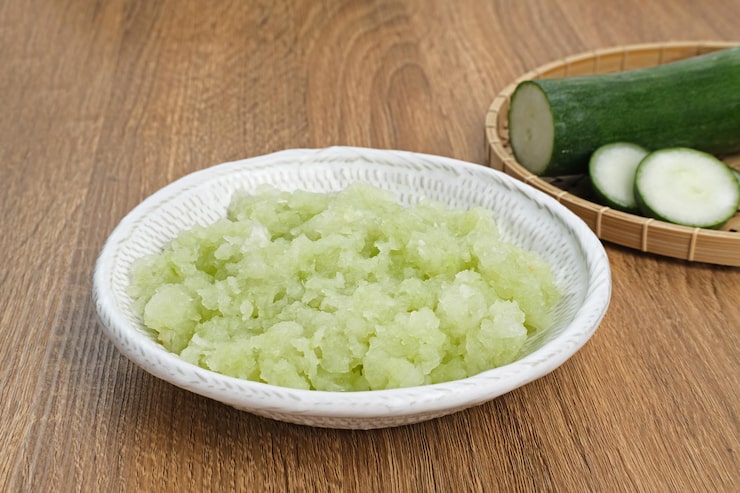I recently discovered the Yuka app (similar to Skin Ninja) and have been trying it out, so here are my honest thoughts.
If you haven’t heard of it, Yuka is a mobile app that scans food and beauty products and gives each one a score showing how healthy it is. Scores run from “Bad” (0–25) to “Excellent” (75–100). If something scores poorly, the app suggests better options.

It’s perfect if you want healthier choices but don’t have time to read every ingredient. It’s also great for spotting harmful ingredients in everyday beauty products. I wish I’d used it sooner — it saves a lot of time.
My experience with Yuka
Getting started was easy. Download the app from Google Play or the App Store and sign up with Facebook or an email. To check a product, just scan its barcode with your phone camera.
The first thing I scanned was a face cream from Natura Siberica. I like it because it keeps my skin hydrated and has SPF20, so I was shocked when Yuka gave it a 14/100. I use several Natura Siberica products because they’re affordable and seem natural — but are they?
Yuka flagged one risky ingredient: ethylhexyl methoxycinnamate. Tapping the info icon explained more. This ingredient, also called octinoxate, is a UV filter. It’s allowed in the EU at up to 10% but isn’t approved in the USA, Canada, or Hawaii because of environmental risks to marine life.
I was frustrated — how can a brand that markets itself as “natural” use this? The product label used the chemical name “ethylhexyl methoxycinnamate,” which didn’t ring a bell for me, so I missed it when buying.
Yuka explained the concerns and pointed to studies. Octinoxate may be an endocrine disruptor, possibly affecting hormones and thyroid function. It can also irritate eyes, skin, and lungs. Had I known, I wouldn’t have bought the cream. From now on I’ll scan products before buying. The app’s reports felt reliable.
Thankfully, that was the only high-risk ingredient in the cream. The rest were lower risk, like potential fragrance allergens such as limonene, or posed no risk.
Yuka didn’t suggest an alternative for that cream, which was disappointing. I’ll need to find a similar product without that UV filter myself.
I also scanned a Natura Siberica vitamin C eye cream and it scored 72/100, which was a relief. So not all their products are problematic — some are fine.
Scanning food with Yuka
I tested food items next. I scanned Weetabix, which my toddler eats a few times a week. I already knew it was a healthy, low-sugar option, and Yuka gave it a 90/100. I also scanned multigrain flakes and got 84/100 — nice to have those choices confirmed.
Yuka also scored Lidl’s chickpeas (75/100), a cheese spread (poor score), and spaghetti. But the app doesn’t have everything in its database, so some items didn’t return any info.
After scanning a food product, you can:
– View the scoring method for a breakdown of how the score is calculated, including nutritional value (using Nutri-Score), additives, and organic status.
– Save favorites by tapping the heart.
– Share product ratings via WhatsApp, email, and other platforms.
The app is simple to use with a clean, easy-to-navigate interface.
Pros and cons of Yuka
Pros:
– Free to use
– No ads
– Independent and not sponsored by brands
– User-friendly and clear design
– Reliable product information
– Easy to operate
– Shareable results
– Scans both beauty and food products
– Saves time reading labels
– Privacy-focused — user data isn’t sold
Cons:
– Database doesn’t include every product
– Doesn’t always suggest alternatives
– Needs internet to scan (offline scanning is available in premium)
– Only analyzes products with ingredient lists in English, Spanish, Italian, German, or French
Paid version
Upgrading adds:
– Offline scanning
– A search function to find products without scanning
– Personalized settings for dietary preferences (gluten, palm oil, lactose, etc.)
– Unlimited scan history
Cost
Membership starts at 10 euros per year. Yuka uses an “open pricing” model, so you can choose to pay between 10 and 50 euros annually.
Final thoughts
Overall, Yuka is worth keeping. It’s helpful for anyone wanting to choose healthier foods and safer beauty products, especially if you’re new to “green” brands. For food, it’s useful but not complete — smaller or lesser-known brands may be missing.
Still, Yuka has a large database (about 2.5 million food items and 1.5 million beauty products) and adds roughly 1,200 items daily. It’s a solid tool for learning what’s in your shopping cart and on your skin — and it keeps improving.
FAQs
Is the Yuka app legit?
Yes — millions use Yuka to assess the health impact of food and cosmetics.
Is Yuka biased?
Yuka says it is independent and not sponsored by brands, which supports unbiased evaluations.
Is Yuka reliable for cosmetics?
Many users find Yuka reliable for cosmetics, as it gives detailed ingredient analyses.
How accurate is Yuka?
Yuka bases its scores on established databases and scientific studies, making it a generally accurate source for product information and health assessments.